John Harold Matthews, Ohio fiction writer, essayist and book collector, died last week at the age of 88. He is survived by his wife Barbara, his two daughters Barbiel and Cynthia and his son John.
His writing spanned six decades, covering a variety of subjects and styles. In the sixties he published a volume of poetry (An Almanac for Twilight), a short story collection (Bitter Knowledge) and a novel (Hanger Stout, Awake!). This novel received commercial success, receiving positive reviews in Time, New York Times and praise by people as diverse as William Stafford and Eudora Welty (who described it as “blessed with honesty, clarity, directness, proportion and a lovely humor.”) Hanger was about a thoughtful but happy-go-lucky small town boy whose world revolves around cars and who is duped into participating in an imaginary sports event. The main character is accepting of his world and yet a keen observer of people around him. The book’s style shows a combination of Hemingway’s restrained stoicism and Updike’s careful attention to surrounding detail. Matthews quickly published several other novels: Charisma Campaigns is about the emotional life of a used car salesman who possesses an almost magical ability to persuade people; Beyond the Bridge is about a middle-aged man who escapes death when a bridge collapses and many people die. Tale of Asa Bean relates the crazy obsessions of a brilliant philosophy student who plans to stage a very public protest about an art exhibition he abhors and ends up making a fool of himself in the process. Pictures of the Journey Back tells about three people who take a long road trip to Colorado to confront their pasts.
Book Collecting
Starting in the late seventies, Matthews turned his focus towards shorter forms. He also cultivated a passion for book collecting which was excessive even for literary/professorial types. Matthews once estimated that his quest to buy and sell books at estate sales and library sales led him to travel over a million miles in his cars. At some point, he had bought an old saloon in a small southeastern Ohio mining town specifically to store his ever-increasing book collection. In 1977 he published a practical guide on book collecting, Collecting Rare Books for Pleasure and Profit, which contains a mixture of advice about appraising antique books and anecdotes about his most notable finds. Matthews was fascinated by the marketplace of the used book trade and how the relative value of books as collectibles varied over the decades. When author and bookstore owner Larry McMurtry told Matthews that his store didn’t like customers who regarded book purchases simply as investments, Matthews scoffed, writing,
It is …. silliness to pretend that buying books “as an investment” is incompatible with scholarship or the true love of literature; Quite the contrary; it is the man who divides his love of literature from the material life who is the true heretic, using only the public library or the niggardly functional paperback for the leavening of his sensibility, and investing his money in Ford Motor Company and AT&T stock. What a dreary divarication is this, and how schizoid and truly mercenary is the man who plays such a nasty game against himself! To invest in books does not imply that the collector intends to sell them; he merely buys them with the conviction that his taste in honoring them will be validated by posterity and that – with effort and know-how comparable to those of other investors – this validation will have a dimension of financial profit.
Matthews believed that the psychological rewards of amassing a collection — any kind of collection — were considerable. “This joy to collect seems intrinsic,” he wrote, “for very young children possess it and soon extend the simple delights of touching and owning to include those more sophisticated delights of building and ordering.” There is the pleasure of the journey and stumbling upon a rare or brilliant title at the most unexpected time or place. Matthews’ penchant for book collecting led to various literary adventures, many of which he detailed in essay collections (Booking in the Heartland, Booking Pleasures and Reading Matter) , published in the 1980s and 1990s. These humorous first-person essays would usually start by describing an odd book or diary which Matthews acquired during his booking adventures. Each of these books might seem “worthless” and poorly written by contemporary literary standards, but Matthews would find beneath this inarticulateness all sorts of insights into how ordinary people thought and spoke. Some examples of unusual books described in these essays include: a Latin translation of the life of George Washington, a 19th century medical guide, math schoolbooks written entirely in verse, steamboat schedules and written accounts by preachers, young Civil War soldiers and weary settlers about the new society emerging on the frontier. Each essay would describe the book in a gently mocking way, but use the book to raise philosophical questions about the past and our difficulties in understanding it.
Finding Inspiration in 19th Century America
His passion for early Americana books provided lots of literary inspiration for Matthews. He started in the late seventies by publishing Tales of the Ohio Land, stories based on actual historical incidents from the 18th and 19th century. One typical story, “Lucinda Hill is Born Again“ tells the tale of a teenage girl who miraculously heals from a serious illness and seeks out John Chapman (aka Johnny Appleseed) to explain whether her nagging sense that she is already dead is actually true. In this depiction, Johnny Appleseed is not a folkloric figure but a sage who asks metaphysical questions. In the early 1980s, Matthews wrote Sassafras, a long comic epic novel about a junior phrenologist from the 19th century who travels through the midwest prairies in search of adventures, a woman and another phrenologist who stole his belongings. Of this novel, a New York Times critic wrote, “the backwoods humor is entertaining, the masculine camaraderie dead center in the tradition of 19th-century frontier whoppers.” During the 1980s and 1990s, Matthews wrote three more major works about the Civil War era — a still unpublished novel titled Boys from Elm Grove, the Gambler’s Nephew (published later in 2011) and the Soldier Boys story collection (published as an ebook in 2016). Gambler’s Nephew relates the tale of how the accidental shooting of a runaway slave by an ardent abolitionist uncovers a whole web of hidden relationships in the community. Unlike the allegorical and satirical Sassafras, Gambler tackles more social and ethical issues, depicting 19th century morality in ways that would make the modern reader squeamish. Matthews doesn’t pass judgement on beliefs and superstitions which might seem repugnant to the modern reader. Instead Gambler’s Nephew shows how people lived with such beliefs while still professing themselves to be religious and upstanding. The soon-to-be-published story collection Soldier Boys depicts how Civil War soldiers try to maintain a semblance of civility and boyish playfulness amidst the horrors of war. Not simply anti-war, these stories use the personal stories of young soldiers as an opportunity to meditate on life and death itself. In the collection’s first story, “Requiem on the Rappahannock,” a junior messenger from General Grant is tasked with delivering to another general the sad news that his wife died giving birth to a dead infant. This messenger encounters all sorts of unexpected obstacles — including the frenzied celebrations by the regiment after a recent military victory. The messenger begins to question his own commitment to deliver the message and wonders whether a society could ever deteriorate to the point where one man’s personal tragedy is no longer noteworthy.
Parallel to his interests in historical subjects, Matthews continued to write short stories about modern living throughout his career. In the 1980s and early 1990s, Johns Hopkins U. Press published several of his short story collections: Ghostly Populations, Crazy Women, Dirty Tricks, Dubious Persuasions and Storyhood as We Know It. (You can download a free Jack Matthews story sampler ebook here). These collections are generally easy to read, realistic, dialogue-driven, tightly-written with occasional rhetorical flourishes. They involve people who work at supermarkets or gas stations or hair salons; they go to class reunions, cocktail parties or kill time in the company break room. Many characters are just unsophisticated folks with ordinary problems. They have worries, obsessions and blind spots. Usually they don’t have grand ambitions, but are focused on the here-and-now. A number of them foolishly cling to certain notions or secretly seethe about things they could not change. They are jealous or spiteful or seemingly irrational. Many have secrets or links to the past. A number of these stories focus on the mundane (and sometimes hilarious) struggles of married couples during various stages of married life (Mr. Matthews himself was happily married to his wife Barbara for 66 years). In the story “Family Plots,” a terminally ill attorney and his wife have a vicious argument over his will and whether the wife should cremate him. Each tries to trick the other into acceding to that person’s wishes. Eventually, one of them prevails, but only at the price of considerable anger and hurt feelings. The long argument may not have accomplished anything but it revealed an emotional chasm between the two which neither had been aware of.
Although some of Mr. Matthews’ stories emphasize plot, usually there’s not a lot of melodrama; often they end after a character stumbles upon a surprising self-revelation. Many end quietly, but explosively. Matthews wrote in many genres, but it could be argued that the short story genre made the best use of his literary talents. Matthews had a knack for conjuring memorable characters out of a few sentences and then using the story as a vehicle to explore their inner lives. The short story genre also gave Matthews ample opportunity to display his ear for the American vernacular and describe people’s lives with wit and irony.
Growing Up and Literary Influences
Jack Matthews grew up in Columbus neighborhood of Clintonville, Ohio (which he described as “virtually woodland and fields” when he was a boy). His father was born on a farm but later studied law under a country judge and eventually had his own law firm in Columbus. Jack Matthews himself once said “I had a wonderful childhood and didn’t know there was a Depression….though (I) remember World War 1 veterans selling apples on the street, but for some reason that didn’t register as a hardship.” He described himself as a “relaxed underachiever in high school.” Before college he served with the Coast Guard from 1943-1945; Matthews remembered reading Jack London’s The Sea Wolf while working as a radioman on the Coast Guard Cutter Maclaine in the North Pacific, on anti-submarine patrol out of Sitka & Juneau (the very sea that the book’s protagonist Wolf Larsen sailed in). He later studied English literature and classical Greek at Ohio State University and married his wife Barbara at the age of 22. After college, he worked at various jobs which (according to Matthews) “gave me an excuse to knock on doors.” That included selling things door to door as a Fuller Brush Man and selling encyclopedias. For a short time he worked as a private detective and later as a produce warehouseman. By the time he and wife had started to raise two daughters, Matthews began working at the Post Office on afternoons and nights (which he did for nine years); that gave him time to write and attend graduate classes in the morning.
He published his first story in 1950 in an Irish literary magazine, and in 1959 he started teaching at Urbana College. After teaching there for five years, he switched to teaching at Ohio University in Athens where he later became distinguished professor of English. He taught creative writing classes and critical approaches to drama and fiction. (In 2011, he published A Worker’s Writebook, a writing guide based on handouts he gave to his creative writing students).
In high school, Matthews recalled being assigned to read Joseph Conrad’s “The Rover” and “pausing on a page to contemplate how wonderful it must be to create such realities.” In college he read Balzac and Twain and aspired to write “philosophical novels.” During college he majored in classical Greek, and his later essays frequently brought in his knowledge of Greek literature into his essays. This knowledge and passion in classical Greek literature is most evident in his play Interview with the Sphinx which he wrote in the 90s and revised years later. The Sphinx from ancient Greece is interviewed in modern times as though she were a celebrity pop star, and the interviewer guesses that Oedipus had not actually solved the riddle of the Sphinx but had only been fooled into thinking so. (In fact, Matthews published an essay in a classical journal during the 1960s arguing the exact same thing). In the play — a philosophical comedy centered around the paradoxes of language– the female Sphinx talks about the most famous literary characters of Greek mythology in a gossipy way — as though everybody was still around. ON HOMER: “I never was exactly sure which one Homer was. I’m positive he wasn’t the blind one, though; that was just a silly story they started telling a few centuries later.” ON OEDIPUS: “Eddie was terribly conceited, you know … of course he was smart and handsome and, oh, just had a way of carrying himself that impressed everybody. In spite of his foot.”
After college Matthews started reading the 19th century German philosopher Arthur Schopenhauer who was known for his pessimism. Throughout his life Matthews continued to return to Schopenhauer, finding him fascinating as a thinker, author and person. In the 90s and 2000s, Matthews used Schopenhauer’s biography as the basis for two fiction projects. The first was Schopenhauer’s Will which Matthews described as “somewhat freakish — not exactly fiction, biography or philosophy, but a mélange of all of these (with a one-act play thrown in).” Although no American publisher dared to publish this cerebral and experimental work, in 2002 a Czech publisher published the book in Czech translation. (Note: This year Nine Point Publishing announced plans to publish it in the US.) Another unpublished work, The Evil Sparrow Dies Again is a play-within-a-novella about an imaginary battle between Lord Byron and Schopenhauer to win the love of an Italian countess.
Two other writers for whom Matthews had a special affinity were Ambrose Bierce and Christopher Morley. Bierce was not only from Ohio, but Matthews admired his gifts for aphoristic expression and caustic satire. In an essay on Bierce’s poetry, Matthews wrote that Bierce “had a gift for enmity, and loved to lampoon and pillory any living target that proved worthy . . . or unworthy, as the case may be.” Matthews also admired the writings of Christopher Morley who he believed was neglected by the literary establishment. In a 2007 essay on Morley, Matthews writes:
By some mystical combination of upbringing, nature and nurture, (Morley) seems to have been inoculated against the existential ANGST so fashionable in twentieth-century literature. He could not help but LOOK at the world, seeing things in the humdrum quotidian that no one else could see, and rejoicing the plenitude of everyday life. Happily extroverted, he was gifted with passionate attentiveness that illuminates his prose in virtually every sentence, just as it evidently illuminated the hours, days and weeks of his life.
Final Years
Despite Matthews’ early desire to succeed as a “philosophical novelist,” and his lifelong fascination with gloomy Continental philosophers, the last two decades awoke in Matthews an admiration both for Morley’s writing and Morley’s appreciation for the small, fleeting aspects to life. In his final decade Matthews continued teaching part time while spending time with his wife and family. He continued writing of course — stories and plays and essays — but also polishing longer manuscripts in various stages of completion. Among his most notable projects in that last decade was a series of prose pieces called Abruptions: 5 Minute Tales to Open the Mind (named because of the abrupt way each piece ended) which he published under the pseudonym Matt Hughes. Not exactly short stories, these 1 or 2 page pieces read more like fables; there was no plot .. only incidents with poetic and philosophical resonances. They are less concerned with delineating individual character than demonstrating how ordinary situations can change the way one perceives the world. The book’s introduction summarizes how these pieces work: “By what is both presented and judiciously excluded, abruptions can reach down to dimensions of wonder and speculation that are commonly thought to be the proper domain of poetry…. it is the narrow and pointed instruments that penetrate deepest.”
One of Matthew’s favorite abruptions was the first one — which hints at farewells and transformations:
THE LESSON
This was one of his first memories. He was five years old and begged to join the older boys in their baseball games. They finally relented, gave him an old glove that hung almost to his knees when he put it on. And to keep him out of the way, they placed him in the “outfield” beyond a ragged row of barberry shrubs.
From this position, the little boy couldn’t see any of the other players. Nevertheless, he faithfully kept gazing up into the sky above the little shrubs. Waiting, waiting, day after day.
Then late one afternoon it happened. He saw a dark point in the sky. It grew swiftly bigger and bigger until it hit him in the face, knocking him down and bloodying his nose.
This was a mystical experience for him, and he never forgot the lesson, which is that there are some things which grow bigger and bigger, and then there is this brief blunt painful spasm of darkness, after which they are gone and you find yourself lying on the ground, looking up at the sky.
****
Here’s a brief collection of works by and about Jack Matthews.
- Audio: 1984 interview with Jack Matthews by Don Swaim . Also, in 2000 he did an audio conversation with Swaim about the author Ambrose Bierce. In 2010 Matthews did another interview with Personville’s Robert Nagle.
- Essays by Matthews: Nathaniel Hawthorne’s Untold Tale. Published in 2010. On Choosing a Right Name for a story character.
- Written interview with Jack Matthews in 2009.
- Miette’s Bedtime Podcast, “A Woman of Properties” Story by Jack Matthews, (from the story collection Crazy Women), read by Miette Elms. January 2011.
- Criticism: Biographical sketch of Jack Matthews by Stanley Lindberg.
Robert Nagle is a Houston-based writer and founder of Personville Press, which produces ebook versions of Jack Matthews books. He is working on a collection of essays about the life and writings of Matthews. The contents of this essay are shareable under a Creative Commons Attribution — No Derivatives license.
Do you have any memories or anecdotes about Jack Matthews? If you do, this website will soon run a story featuring these reminsciences. Contact Robert Nagle (idiotprogrammer AT gmail com ) to send your contributions.

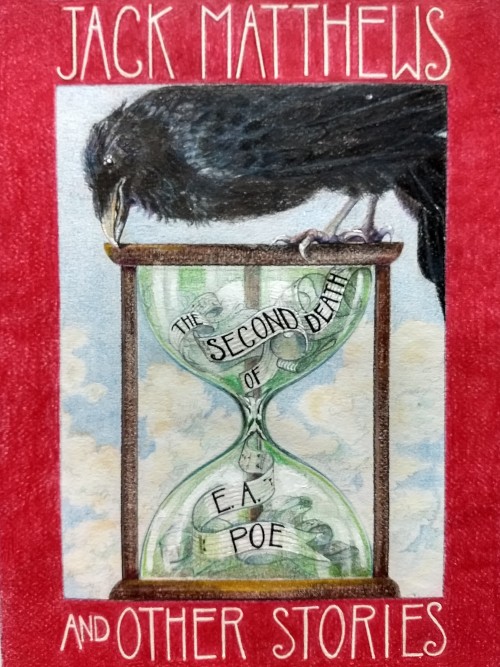
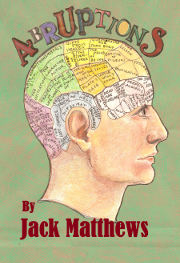
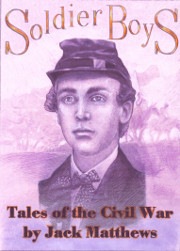
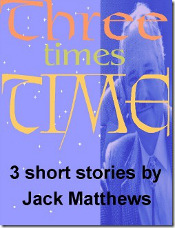
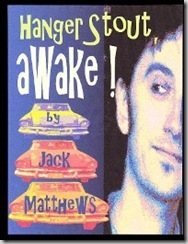
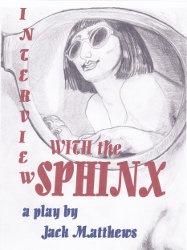



Goodnight, Uncle Jack. It was an honor to learn from you.
“We’ll meet again / don’t know where / don’t know when / but I know we’ll meet again some sunny day…”
He was a great, very humorous man. It was a joy to know Jack. Thank you for this wonderful tribute. I enjoyed every sentence of it! Steve Mowrey, former employee & book gopher for Jack at Alden Library, Ohio University.